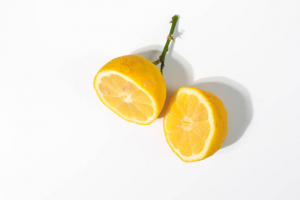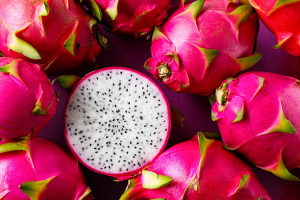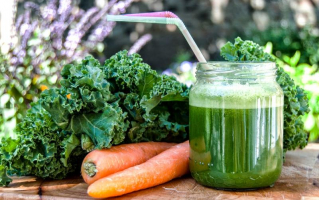Top 7 Health Benefits of Passion Fruit
Passion fruit is a fascinating and enigmatic fruit with a surprising amount of health and medical advantages for those who want to include it in their diet. ... read more...Despite its tiny size, it is high in antioxidants, vitamins, and plant components, all of which may be beneficial to your health. Here are the best health advantages of passion fruit that you should be aware of.
-
Passion fruit is a good source of nutrients, especially fiber, vitamin C, and provitamin A. Single purple passion fruit contains:
- Calories: 17
- Fiber: 2 grams
- Vitamin C: 9% of the Daily Value (DV)
- Vitamin A: 8% of the DV
- Iron: 2% of the DV
- Potassium: 2% of the DV
Though this may not appear to be much, bear in mind that these values are for a single, little fruit with only 17 calories. It's a rich source of fiber, vitamin C, and vitamin A calorie for calorie. It's also high in plant chemicals that are good for you, such as carotenoids and polyphenols. According to one research, passion fruit has more polyphenols than several other tropical fruits, including banana, lychee, mango, papaya, and pineapple. In addition, passion fruit contains a little iron. Iron from plants is often poorly absorbed by the human body. However, the iron in passion fruit is accompanied by a high level of vitamin C, which is known to improve iron absorption.
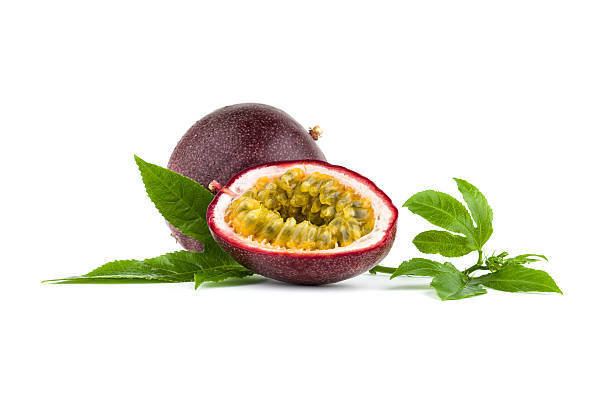
Highly nutritious 
Highly nutritious -
Antioxidants protect your body from free radicals, which are unstable chemicals that may harm your cells in big quantities. Passion fruit is high in antioxidants. It is very high in vitamin C, beta carotene, and polyphenols. Polyphenols are plant chemicals with antioxidant and anti-inflammatory properties. As a result, they may lower your risk of chronic inflammation and illnesses such as heart disease. Vitamin C is an essential antioxidant that you must obtain from your diet. It benefits your immune system and promotes healthy aging.
Another crucial antioxidant is beta-carotene. It is transformed by your body into vitamin A, which is necessary for maintaining excellent vision. There is evidence that diets high in plant-based beta carotene may reduce the chance of developing some cancers, such as breast, prostate, colon, and stomach cancers. When taken as a supplement, piceatannol, a polyphenol found in abundance in passion fruit seeds, may increase insulin sensitivity in overweight men, lowering their chance of developing type 2 diabetes.
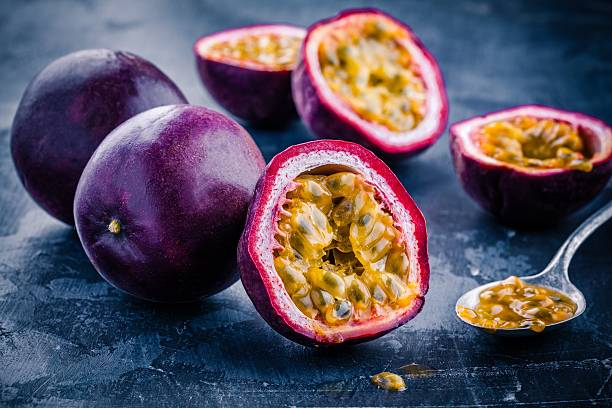
Rich in antioxidants 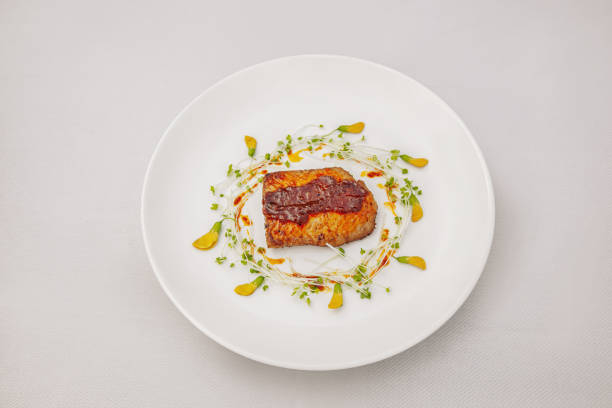
Rich in antioxidants -
When used as a supplement, passion fruit peels' high antioxidant content may provide potent anti-inflammatory benefits. Over four weeks, one modest research looked at the effects of a purple passion fruit peel supplement on asthma symptoms. Wheezing, coughing, and shortness of breath was reduced in the supplement group.
In a different trial, participants with osteoarthritis of the knee who took a purple passion fruit peel extract experienced less joint pain and stiffness than those who did not take the supplement. Overall, further study is required since it is still unknown how antioxidants affect pain and inflammation in people with osteoarthritis.

Reduce inflammation 
Reduce inflammation -
The high iron and copper content of passion fruit can have a significant effect when paired with the vasodilation abilities of potassium. Copper and iron are both necessary building blocks for the synthesis of red blood cells (RBCs). When the RBC count rises and the blood arteries expand, healthy, oxygenated blood may flow freely to the body's critical regions, promoting metabolic activity throughout all organ systems and increasing output and efficiency.
Passion fruit is high in minerals such as iron, copper, magnesium, and phosphorus, making it an excellent fruit for enhancing bone mineral density and bone strength. Many of these minerals are essential in the formation of new bone matter, the strengthening of existing bone matter, and the speeding up of healing. This can be used to prevent or alleviate the symptoms of osteoporosis, as well as the pain and inflammation that occurs as bones degenerate with age and exercise.
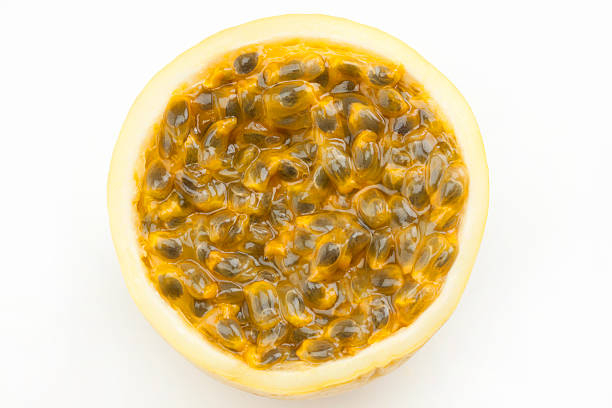
Improve circulation and alleviate bone health 
Improve circulation and alleviate bone health -
According to research that was published in the Journal of Agricultural and Food Chemistry, passion fruits are a highly rich source of fiber. The human body gets 98 percent of what it needs each day from a single cup of this fruit. Since fiber is the element that supports good food digestion and bowel movement control, it is a crucial part of a balanced diet.
If you consume one serving of passion fruit each day, you can meet one-quarter of your potassium requirements. According to Dr. Robert Brace, author of "Fetal and Neonatal Body Fluids", potassium is a crucial element in the human body for a variety of reasons, one of which is its role as a vasodilator. It reduces blood vessel strain and promotes improved blood flow. This decreases cardiac strain and improves overall cardiovascular health.
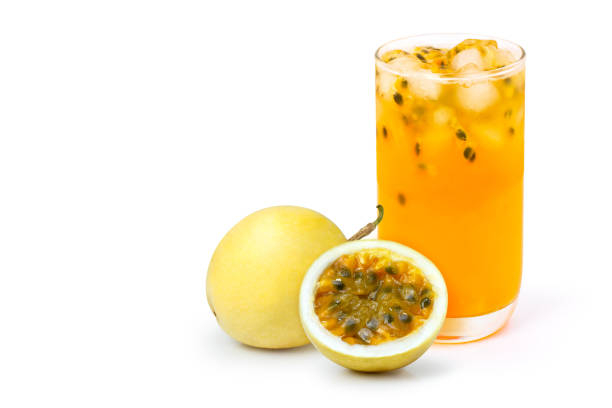
Aid in digestion and reduce blood pressure 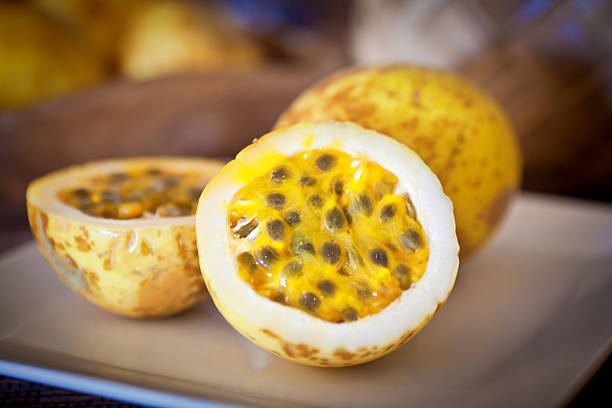
Aid in digestion and reduce blood pressure -
Passion fruit is also regarded to be a potent source of anti-cancer action in the body. Passion fruit antioxidants largely remove free radicals, which are known to mutate the DNA of healthy cells into malignant cells. Passion fruit also includes vitamin C, flavonoids, and phenolic chemicals, all of which have been related to anti-cancer qualities, according to the Journal Food Research International.
Macular degeneration, cataracts, and night blindness are among the eye conditions that vitamin A has been connected to as having favorable effects on eye health. In addition, passion fruit's strong antioxidant content aids in wrinkle reduction and supports healthy membrane function throughout the body, including that of the skin, to keep it moisturized and radiant!
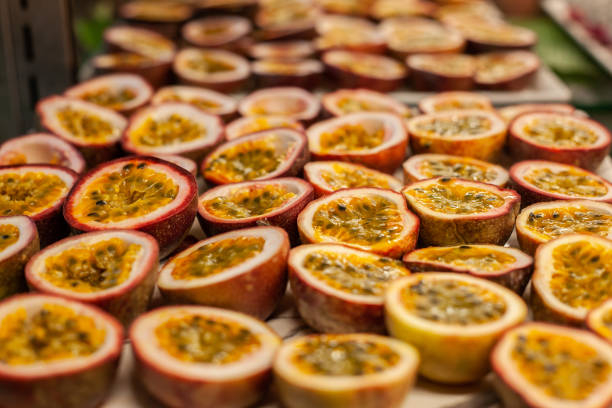
Anti-carcinogenic potential and rich in vitamin A 
Anti-carcinogenic potential and rich in vitamin A -
According to a study led by Dr. Stephen Talcott of the Department of Food Science and Human Nutrition at the University of Florida, passion fruit has a sizable amount of antioxidants that support the body's immunity. Up until recently, the majority of people were unaware that the inclusion of vitamin C, carotene, and cryptoxanthin is what gives food its immune-strengthening properties.
One often overlooked compound in passion fruit is a medicinal alkaloid, Harman, which functions as a sedative. This compound of passion fruit has been connected – mostly in fold medicine with a reduction in restlessness, insomnia, and nervous anxiety, which can keep you from getting a good night’s sleep. So, instead of a glass of warm milk, next time try reaching for a slice of passion fruit and head back to your pillow!

Boost immunity and reduce blood insomnia 
Boost immunity and reduce blood insomnia









